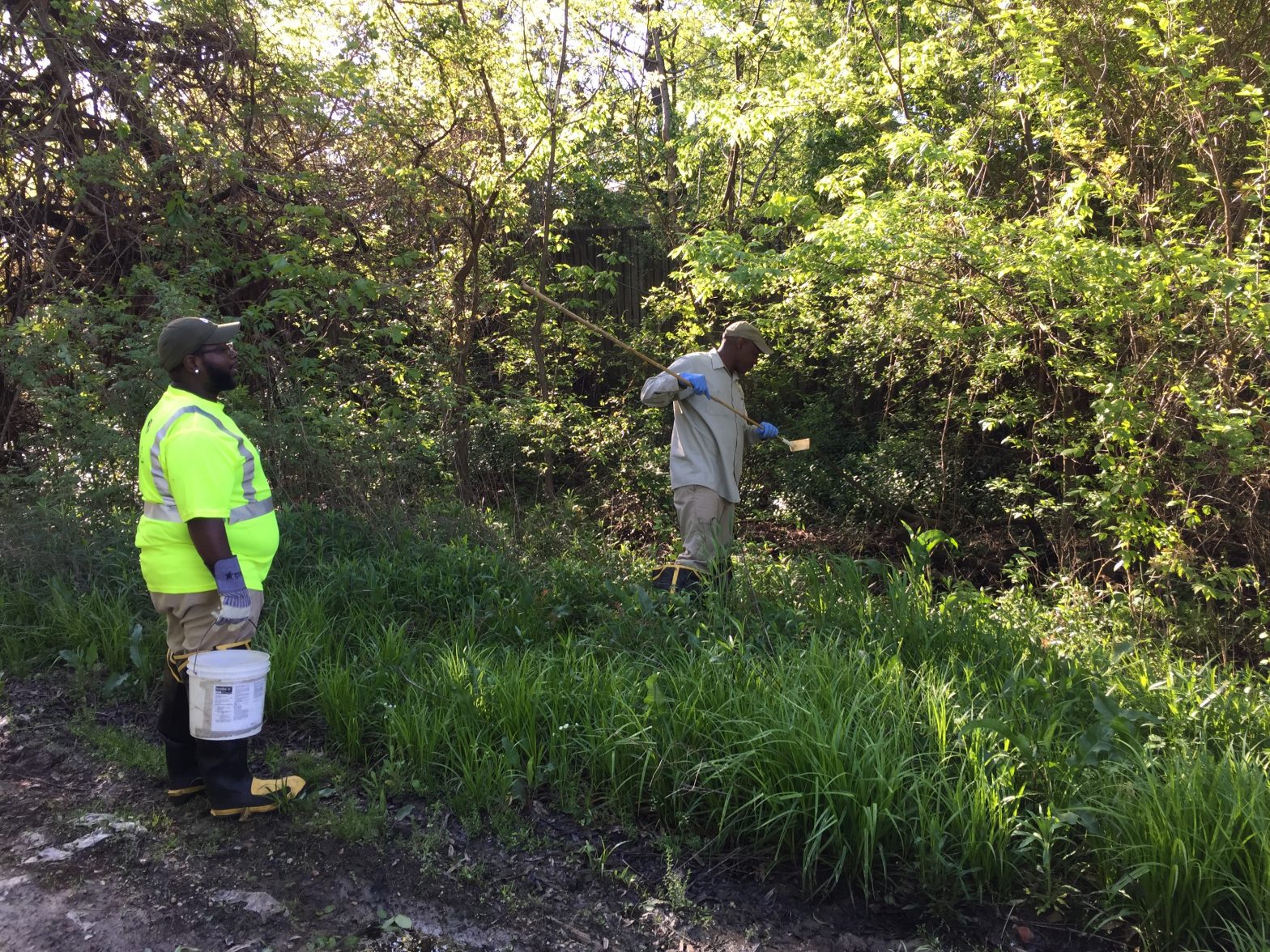As harsh winter weather made a mess and broke water mains last month, optimists may have hoped that it, at least, might cut back the mosquito population this summer. According to health officials here, that hope is misplaced.
Kasia Smith-Alexander, adminstrator of the Environmental Health division of the Shelby County Health Department, said the winter snow and ice likely helped to grow the mosquito population here.
“We are having a lot of water and moisture,” said Smith-Alexander. “So, we are anticipating more breeding of mosquitos because we’ll have more areas for them to lay their eggs, for them to continue their life cycle.
“We are anticipating there will be more of a boom for the mosquito season this year because of all the melting of the snow. And days like today with more rain, that will give them ample opportunity to replicate.”
As for freezing temperatures killing off vast populations of mosquitos, Smith-Alexander said it doesn’t always happen. Mosquitos like warmer weather, anything over 80 degrees, she said. But some species of female mosquitos can find small holes or crevices and hibernate up to six months, she said.
The year’s mosquito forecast for the Southeast is expected to be average or slightly above average, according to the nonprofit pests.org website. Experts with the site analyzed weather data and made their predictions based on forecasts of a wetter summer in which temperatures will be average or slightly higher than average.
”Mosquito season will start around mid-February to early April, depending how far north your state is in the region,” reads the report. “For example, South Florida’s mosquito season will have started in February while Tennessee’s mosquito season will start around the beginning of April once the temperatures are more consistently warm.”
To battle mosquitos in Shelby County, Smith-Alexander said crews here find stagnant water — like in puddles and ditches — and use larvicide, granules of pesticide to kill mosquito babies.
“This time of the year, we tell people to look at their bird baths,” she said. “If you have or a neighbor has a dilapidated pool, by all means contact us and we’ll come out and verify whether or not [mosquito larva are present]. If there are mosquito larva in the water, we’ll treat that water. This is something we do all the time, 12 months of the year just trying to make sure we are putting down something to help with the mosquito population.”
Memphians may be more familiar with the mosquito trucks that pass by, puffing a white fog into the air. Smith-Alexander said those those trucks aren’t there because “we have an exorbitant amount of mosquitos” in the area. Those trucks fog in areas where West Nile Virus has been detected in the mosquito population, she said.
For citizens, Smith-Alexander recommends using an insect repellent containing DEET. Also, wear breathable, light-colored, long-sleeved shirts and long pants if you plan to be outside at dusk or dawn. Also, she suggested to look around houses for anything that may be holding water, like old tires or planters.
She said her office has had complaints of large mosquitos inside some houses this year. Those are crane flies, Smith-Alexander said. They do resemble mosquitos but don’t bite. However, they also don’t eat mosquitos as some believe, she said.
